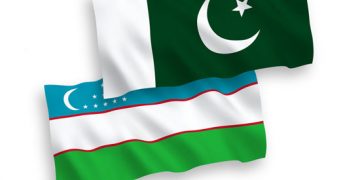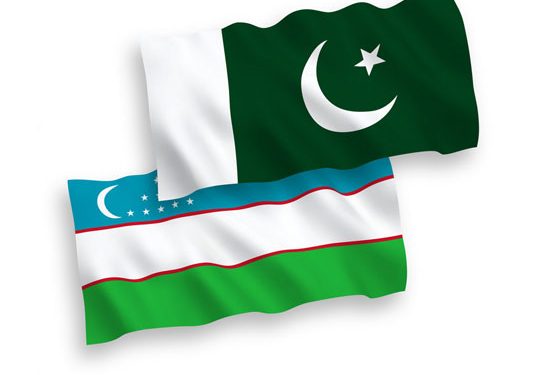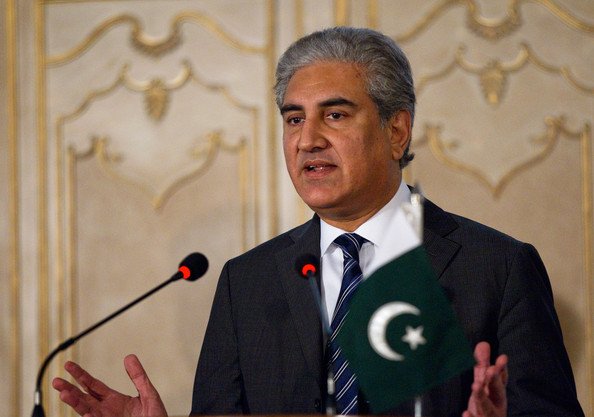Ramzan Mughal
The Republic of Uzbekistan is a Central Asian nation and former Soviet republic. It’s known for its mosques, mausoleums and other sites linked to the Silk Road, the ancient trade route between China and the Mediterranean. Samarkand, a major city on the route, contains a landmark of Islamic architecture: the Registan, a plaza bordered by 3 ornate, mosaic-covered religious schools dating to the 15th and 17th centuries.
With a rich and impactful history on its side, the state is once again on the road to stabilization under the presidency of Shavkat Mirziyovev. Uzbekistan houses a population of around 34 million people. President Shavkat Mirziyovev is inclined towards reforming the econ
omic system to make it more market-oriented. According to World Bank, Uzbekistan has achieved substantial progress in transforming its economy and society since 2017. The Government is now moving on to the next stage of economic reforms to address structural constraints. The Government has announced its intention to halve poverty by 2026 and achieve upper-middle-income status by 2030.
Huge reserves of natural and energy-rich resources make Uzbekistan and other central Asian states more attractive for regional as well as global powers.
Tashkent, aware of its geostrategic and economic potential,
stan’s deep seaports are another attraction for double landlocked Uzbekistan. And Pakistan can connects Uzbekistan to the through China-Pakistan Economic Corridor (CPEC) to the Karachi and Gawadar ports.
Pakistan was one of the first country to recognize Uzbekistan after the Soviet disintegration and subsequent liberation of Central Asian states. Pakistan and Uzbekistan have since enjoyed friendly and cordial relations with each other. Religious coherence has also aided in strengthening this bond.
Various state visits have been conducted by both sides aimed at defining the regional and global aims and exhibiting strong desires to cooperate and coordinate in economic, social, and cultural sectors. Efforts to enhance cultural integration are evident from the fact that two of the major universities in Uzbekistan have an Urdu department and a combined dictionary of around 4000 common words is published.
Bukhara and Samarkand, the ancient lands known for their historic affiliations with Islam and the major contributions they made in the fields of science and philosophy. In this regard Baburi Forum Pakistan chapter and Uzbekistan are playing important role.
Trade agreements and joint projects can strengthen the ties between the two countries, and may pave the way for an even stronger relationship in the future.
arranged the Central and South Asia Connectivity Conference on 15th July. The conference was attended by major world powers and international organizations including the US, Russia, China, and the EU.
Pakistan can provide a connection and transit route to Middle East and Arabian Sea. Its close proximity to the South Asian and South-East Asian states further makes its role significant in regional and geopolitical domains. It is said that controlling Central Asia is imperative for any world power to consolidate its global strength and position.
Due to Uzbekistan’s pivotal position and geostrategic location of the region allows it to bridge the gap between the East and the West. The development of the China-Pakistan Economic Corridor (CPEC) and the larger One Belt One Road (OBOR) initiative provides Pakistan access to Uzbekistan through Tajikistan from Gilgit-Baltistan via China using the Karakorum highway or via Afghanistan. Paki
se the exports of textile, food, IT and pharmaceuticals sectors and these preferential sectors can also be exported to other Central Asian states.
Pakistan’s transition from geo-politics to geo-economy and Uzbekistan’s rigorous “commercial diplomacy” has been getting momentum for the last two years. Interestingly, Pakistan was ranked second among all Muslim countries to visit Uzbekistan as tourists (increased 12 times) during 2019 which consequently brightened scope and bilateral cooperation in tourism and culture sectors.
On the other hand, in the last two years, Pakistani investment and entrepreneurship presence in Uzbekistan has almost doubled from 68 to 109 units, and the Pakistani goods transit via Uzbekistan has been increased five times. Thus bilateral trade between two countries have been “flourishing” and “forwarding looking”. Pakistan-Uzbekistan relations can be analyzed through multiple perspectives, their mutual goals and approach to regional and global stability remain coherent. Owing to the shared religious, cultural, and historic background, the states are inclined to move forward with a positive attitude and work together for the prosperity and stability of the region.
If dealt with efficiently, Pakistan and Uzbekistan could have the potential to increase their trade substantially for mutual benefit. Regional and global challenges can be tackled effectively by joint efforts and bilateral or multilateral talks.
The President of Uzbekistan H.E. Shavkat Mirziyoyev’s visit to Pakistan is very important and will boost bilateral and transit trade between both countries. It predicts that during the stay of Uzbek president the “Preferential Trade Agreement (PTA)” and “Transit Trade Agreement (TTA)” will be signed which will hopefully, further increase bilateral trade between Uzbekistan and Pakistan. It will a “giant step” for immense economic cooperation between two sides. Signing of PTA & TTA will further increa






